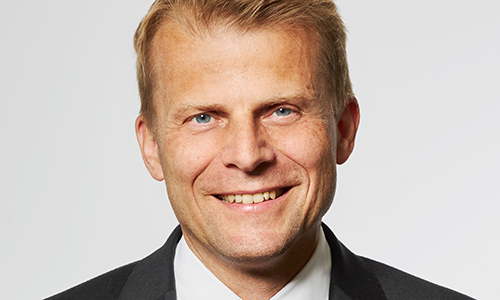The first major Swiss wealth manager reported its results today. finews.com spoke with a KPMG banking expert on what the broader outlook is for the industry.
In 2021, many Swiss wealth managers reported record results and assets under management, bolstered by extremely favorable markets and substantial new money inflows. A perfect storm of negative events last year turned those results on their head.
On Friday, Union Bancaire Privee was the first major Swiss wealth manager to report its first-half results, with Julius Baer to release its results on Monday.
At the end of June, UBP held 140.6 billion ($163.2 billion) of assets under management, which is marginally higher than the 140.4 billion at the end of last year which marked a sharp decline from 160.4 billion at the end of 2021. Commenting on the results, CEO Guy de Picciotto said «Although global markets have recovered, clients tend to have a 'wait-and-see' attitude.» Does that reflect the broad view of the industry at present?
New Money Inflows Limited
In assessing the overall environment for the industry, KPMG banking expert Christian Hintermann (pictured below) tells finews.com that «although the markets have stabilized somewhat, the environment remains challenging.» He says that net new money generation remains limited for many private banks and asset managers.

(Image: KPMG)
Assets under management declined significantly in 2022, they were at a much lower level at the beginning of 2023 than in the previous year. In addition, Hintermann said the weak dollar is having a negative impact on earnings and assets under management. However, as in 2022, private banks are benefiting from the sharp rise in net interest income, which has led to record results in some cases.
«Net new money generation remains limited for many private banks and asset managers. And as assets under management declined significantly in 2022, they were at a much lower level at the beginning of 2023 than in the previous year. In addition, the weak dollar is having a negative impact on earnings and assets under management. However, as in 2022, the private banks are benefiting from the sharp rise in net interest income, which has led to record results in some cases.»
He went on to say for the second half of the year, «We currently do not see any change in the situation.»
Benefits of Tigher Monetary Policy
With inflation rapidly breaching and rapidly shooting past the upper boundaries set by central banks, they quickly reversed their easy money courses and began aggressively increasing interest rates. This had a positive effect on private banks.
Hintermann points out that the «tightening of monetary policy has led to record results in net interest income, offsetting the negative impact of restricted customer activity, limited net new money acquisition and declining assets under management.»
Last year, he said private banks already «benefitted strongly,» as shown by the share of net interest income of all private banks in Switzerland rising from 13 percent to 20 percent of revenues last year and «likely to rise further in 2023» before declining again in the coming years.
Unlike the private banks, however, the «pure asset managers cannot benefit from the tightening of monetary policy and the resulting rise in interest rates.»
The Risks Ahead
In assessing the risks of private banking, Hintermann points out that they have an advantage in that they're less risky and capital intensive than other banking businesses. As such their «main risks are dependence on developments in the financial markets, increasing complexity and restriction of the business due to new regulations and geopolitical developments, and reputational risks.»
The Wild Card
Amidst all of this is the historic demise of Credit Suisse, which at the end of 2022 had around 1.3 trillion of assets under management. The big question is where those funds will wind up. Julius Baer has ambitions to more than double its assets under management from 424.1 billion francs currently to one trillion.
In a recent interview with the Geneva daily «Le Temps,» EFG Chairman Alexander Classen offers said openly what many others are thinking and doing. Classen was very open about the unique window of opportunity available to poach first-class client advisors from Credit Suisse. More advisors almost always translate into more assets under management.
The question observers will be asking is whether wealth managers getting new money is from clients abandoning their wait-and-see approach or are just repositioning funds they pulled from Credit Suisse and, by extension UBS.
Another piece of the puzzle will fall into place on Monday when Julius Baer releases its results for the first half.
Christian Hintermann is a partner at KPMG Switzerland and studied business administration at the University of Zurich and has a doctorate degree. He joined KPMG in 2007 and was promoted to Partner in 2008. He leads the Deal Advisory team within Financial Services Consulting and advises national and international financial services clients in Switzerland. He provides advisory services covering all aspects of M&A transactions in the financial services sector, with an emphasis on the wealth and asset management sector. He has been involved in a very large number of M&A transactions, both on the buy and sell side. He advises on large-scale global but also on local transactions. He authored various studies on the private banking industry including the yearly publication «Clarity on Swiss Private Banks.» Prior to joining KPMG in 2007, he acted as Head of M&A and Head of Corporate Development. In that role, he managed many important strategic projects and a high number of very large corporate transactions. Prior to this, he worked as an M&A consultant and auditor with a focus on the financial sector.


































